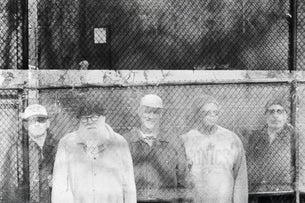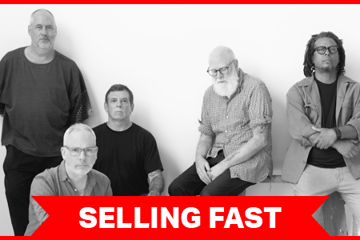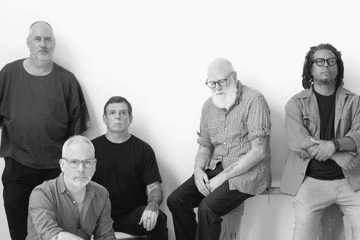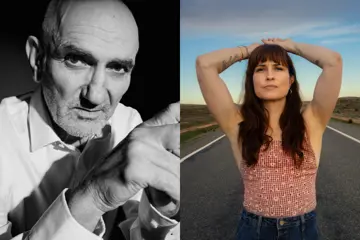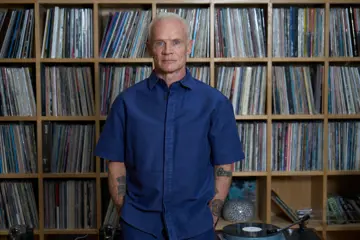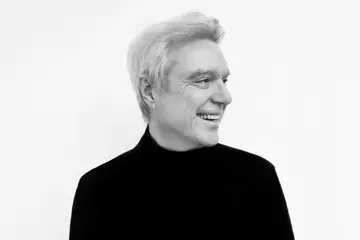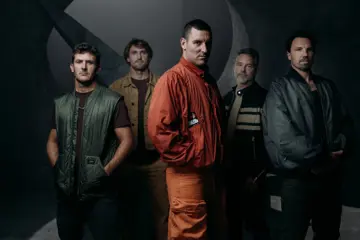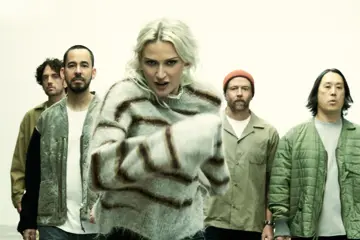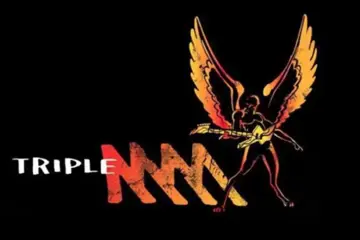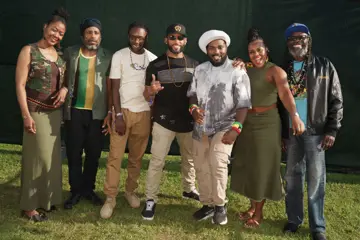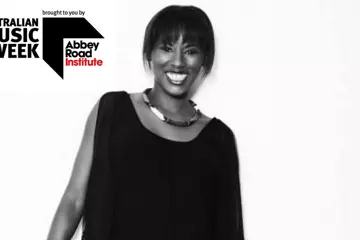 Tortoise
TortoiseWhen Tortoise first emerged in the Chicago music scene in 1990, they found themselves in an incredibly transitory place in music. Hometown heroes The Smashing Pumpkins were about to enter the worldwide limelight on the back of their debut record Gish, Dave Grohl joined Nirvana and solidified the perpetuated line-up of the band, and the maligned excesses of '80s synth and hair metal were giving way to the stripped-back, angry music of the '90s. From the get-go, Tortoise were always going to find themselves exploring new musical territory, and the eventual release of their debut self-titled album in 1994 marked them as one of the most exciting and dynamic bands that constantly rode the fringes of the musical scene.
Just don't assume that they made a deliberate effort to stand out from the pack, though. “To be honest, it didn't really feel like we were making any large effort to make something that people would look at and go, 'Wow, that's totally different',” Drummer and founding member of the group John Herndon says over the phone from his phone. “I think it seemed like a really natural transition. It didn't really feel like we were stretching ourselves that much, we were just a bunch of friends who got together and wrote a bunch of songs, or pieces of music, or whatever they were, and recorded them.
“I'm sure it was just like the way any other band does it, except we didn't have a singer. We had an idea, like I guess our only real solid concept is that we wanted it to have two basses and two drum kits. And then on top of that, we just tried to get some weird shit going on,” Herndon laughs. “But I feel like there was already a lot of weird stuff going on, and I feel we were just pulling it in the right direction by allowing a lot of other weird stuff. We were just kinda like, 'Ok, let's go this way'.”
What ended up from those original experimentations would become a band that was, first and foremost, directed by rhythm. Founding the band with Eleventh Dream Day bassist Doug McCombs, the duo started to flesh out the concept of Tortoise, before enlisting Bastro bassist Bundy K. Brown and drummer John McEntire. So there was that; four members, two basses, two drum kits. All that was left was to top it all off with the aforementioned “weird shit”. Their evolving groove saw them use developing studio trickery, as well as a passion for wielding various eclectic instruments both in the studio and on stage, including everything from driving synth to soaring guitar melodies. There was also a rumour that Herndon himself busted out a saxophone onstage for their first couple of shows…
Don't miss a beat with our FREE daily newsletter
“That was actually Dan [Bitney] who played saxophone. I certainly didn't,” Herndon corrects with a chuckle, referring to his long-time friend and fellow drummer, who would become the fifth member of Tortoise. “Dan was in this band called the Tar Babies, who put out some records out on SST, and before that they had their own label,” he explains. “I'd known him longer than I do any of the other guys in Tortoise. He was planning to move to Chicago when we were sort of getting together and playing as a group. Like it started as the duo of Doug] and I, and John and Bundy kinda came in. I love Dan so much, and I love the way he plays and his energy. We just hit it off straight away. I was like, 'Let's get Dan in here somehow', so he was like, 'Well, I'll play saxophone, I guess',” Herndon laughs. “But he's an amazing drummer.”
So, three drummers? And two bassists? That may well sound like a recipe for disaster, but the group's fondness for bending the rules of a typical band make-up and penchant for switching seats (McEntire is most probably well-known for his engineering and production duties) meant that they were able to keep the project well-rounded. “It's funny because Dan was, and still is, the guy that switches around on more instruments than anyone else in the band,” Herndon explains. Like, I like to stick to the drums and percussion, Bundy likes to stick to the rhythmic bass blues… but we knew when we started writing that we were going to have to… not compromise, but really learn to leave our comfort zones and take on different roles. There wasn't really a moment that we all of a sudden said, 'Well, now I'm going to have to start playing keys' or anything like that. It really was the eventual path of just jamming and making music together, and we found roles and a sound that just fit.”
Therein lies the key to a lot of the excitement that has been built around Tortoise over the years: the keen sense of balance they've found in what can easily be described as an erratic process of creating music. “That's completely down to our genius songwriting abilities,” Herndon jokes, tongue planted firmly in cheek, when the idea of finding perfect balance comes up. “No, no, I'm just joking. Seriously, it's really just about taste. Luckily, we make music that people readily respond to and seem to… it hits people in the right way. A lot of people actually say we don't extend ourselves enough; that we're too subdued. I don't know, it's pretty hard to answer because when you're creating music or an art piece or something, you're not constantly checking yourself; you can't critique it. That's something that comes after, from other people.”
As much as Herndon and the band as a whole distance themselves from making any over statement about where they sit in the musical spectrum, the years have seen them lumped in with their contemporaries, such as Slint among others. And this, of course, brings up the term journalists like myself love and the one musicians hate: post-rock. Herndon is ambivalent about the connection between Tortoise and the genre that houses everyone from Mogwai to Sigur Ros. He even seems slightly offended, which is completely fair judging from how much he inevitably hears the words. “Yeah, I don't know, it's something that comes up so much in conversations like these,” he states. “It's never something we've really thought about. I guess I don't even really know what post-rock means. I never felt committed to the idea [of post-rock], but I'm past worrying about it anyway. But, yeah… whatever,” he concludes with a sigh and a laugh. “I don't know. It's what the people like. I know Mogwai are one of those bands as well… is it just bands that play rock music that don't have vocals? I don't know man, it's not something we ever worry about. We just wanna do our own thing.”
And doing their own thing is in no way bad. Heading back to Australia to play Perth's inaugural everything-and-anything-that's-weird-and-incredible festival, This Is Nowhere, they've announced a few earlier gigs in Sydney, Brisbane and Melbourne to spread the Tortoise love. “Oh thanks man, that's great to hear,” Herndon enthuses after this scribe details his excitement like a gushing fanboy. “We're really looking forward to it. We've been playing a lot of shows at home [in Chicago], but we're trying to make sure that when we come down we just kill it.”
Sunday 14 October, This Is Nowhere Festival, University Of Western Australia - WA
Thursday 11 October, The Hi Fi Bar - NSW
Friday 12 October, The Zoo - QLD
Saturday 13 October, The Corner - VIC

